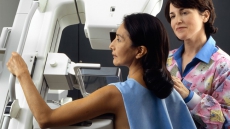Diabetics who skip breakfast may have elevated blood sugar levels throughout the day, warns new research.
Fasting until noon triggers major blood sugar spikes and impairs the insulin responses of Type-2 diabetics throughout the rest of the day, the researchers said.
"For Type-2 diabetic individuals, the omission of breakfast is associated with a significant increase in all-day blood sugar spikes and of HbA1C, which represents average blood glucose levels over the preceding three months," said researcher Daniela Jakubowicz, a professor at the Tel Aviv University in Israel.
The study was conducted on 22 Type-2 diabetics who averaged 56.9 years old, with a mean body mass index of 28.2 kg/m2.
Over the course of two days, the participants consumed precisely the same number of calories and the same balanced meal for lunch and dinner.
The only difference was that one day they ate breakfast and the second day they fasted until lunch.
The researchers found that participants experienced extraordinary glucose peaks of 268 mg/dl (milligram per decilitre) after lunch and 298 mg/dl after dinner on days they skipped breakfast versus only 192 mg/dl and 215 mg/dl after eating an identical lunch and dinner when they ate breakfast.
"This means that reducing the amount of starch and sugars in lunch and dinner will have no effect on reducing elevated glucose levels if diabetic individuals also skip breakfast," said Jakubowicz.
According to the researchers, pancreatic beta cells which produce insulin lose their "memory" due to the prolonged period between one evening's dinner and the next day's lunch.
In other words, they "forget" their vital role.
Another factor is that fasting until lunch increases the fatty acids in our blood, which renders insulin ineffective in reducing blood glucose levels, the researchers explained.
The findings were detailed in the journal Diabetes Care.





